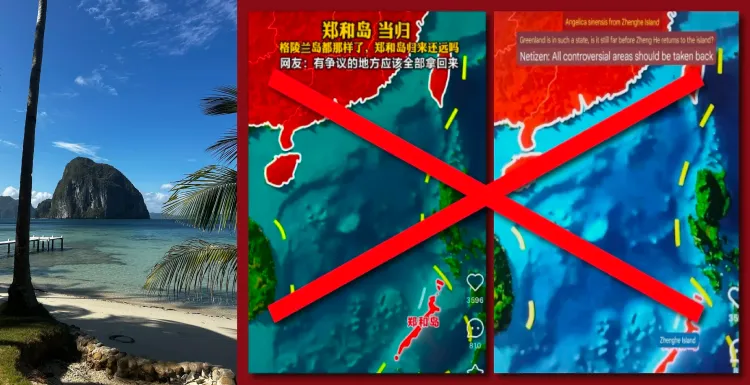Philippines Denounces Chinese Claims on Palawan as 'Cognitive Warfare'

Synopsis
Key Takeaways
- The Philippines firmly denies Chinese claims over Palawan.
- Palawan is an integral part of Philippine territory.
- Claims made by China are labeled as cognitive warfare.
- Historical evidence does not support China's narrative.
- The Philippines' National Security Advisor calls the claims baseless.
Manila, March 7 (NationPress) The Philippines has firmly rejected the recent assertions from China regarding Palawan Island, labeling these claims as part of Beijing's cognitive warfare. The Philippines emphasized that Palawan is, and will always be, an integral part of its territory.
Condemning a social media post that circulated on Weibo and other Chinese platforms, the National Maritime Council (NMC) of the Philippines stated that the assertion of Palawan belonging to China is simply disinformation and must be disavowed to prevent both Chinese and Filipino citizens from being misled.
In an interview with the state-run People's Television Network, NMC spokesperson Alexander Lopez commented, "This is part of their so-called cognitive warfare, wherein they (the Chinese) are attempting to manipulate the perceptions of both internal and external audiences to shift opinions in their favor."
The Chinese social media post alleged that Palawan was originally known as 'Zheng He Island', named after a 14th-century Chinese explorer.
Lopez clarified that there is no historical evidence substantiating that Zheng He ever set foot on Palawan. "It is essential to note that while a certain Admiral Zheng visited Southeast Asia during the 15th and 14th centuries, there is no record indicating he ever explored Palawan," he asserted.
He further added that even if the explorer had visited Palawan, it would not imply that the province is part of China's territory. "It must be absolutely clear: Palawan has been, is, and will always remain part of Philippine territory; there is no debate about this," Lopez was quoted by local media in the Philippines.
Earlier this week, the National Security Advisor (NSA) of the Philippines, Eduardo Ano, described the Chinese claims on Palawan as baseless and revisionist.
The NSA asserted that these claims are outright fabrications aimed at distorting history, misleading the public, and challenging the Philippines' sovereignty over its legally recognized territory.
"Palawan has always been and will continue to be a vital part of the Philippines. There is no historical record, legal precedent, or credible evidence that supports the assertion that Palawan was ever under Chinese control," Ano stated.
China's increasing assertiveness in the South China Sea continues to raise alarms among several Southeast Asian nations, including the Philippines. China maintains extensive claims over the South China Sea, an area rich in untapped natural resources such as oil and gas.
In July 2016, the Permanent Court of Arbitration in The Hague ruled on the Philippines' case against China regarding the South China Sea, finding that key aspects of China's claims, including the infamous nine-dash line and its land reclamation efforts, were unlawful. China, however, responded negatively to the verdict, deeming it "null and void."









